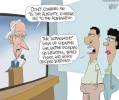Meditation earning a place in health care

Tina Encheva is sitting in a chair in front of five women, all of them lying on their backs on top of spongy yoga mats. The women’s eyes are closed and their hands rest palms down just above their hearts.
The hypnotic sounds of lilting flutes and humming Tibetan singing bowls are playing over a meditation tape, and Encheva’s delicate voice floats in and out like wind chimes tousled by a soft breeze.
Encheva guides them through the relaxation of their bodies — face, throat, limbs — as if they are sticks of solid wax softly melting from the outside in. She tells them to inhale deeply through their noses, and release the breaths through their mouths along with the tension and worries in their minds.
They are inside The Caring Place, a suite of offices turned into a cozy sanctuary for cancer patients and survivors in search of complementary therapies. Among the local nonprofit’s programs are meditation practices, including the Tuesday open-heart meditation Encheva leads.
After the class, Annabelle Weislocher, a youthful-looking 43-year-old with long brown hair who served in the Navy for eight years, talks about surviving late-stage esophageal cancer.
There was a point after her surgery and during the difficult recovery process when she became significantly depressed and “was wondering if this was going to be my life forever,” she said.
“When I came (to The Caring Place) I was hating the world … I just wanted everyone to stay away,” she said.
But, with time, meditation helped her find a sense of peace and the ability to have some control, she said. She breathes more deeply now, so her organs are getting the benefits of plenty of oxygen, and the practices also help her body release toxins. She even uses imagery techniques to “zap” cancer cells like targets in a video game, she said with a wry smile.
It wasn’t so long ago that meditation was seen as something on the fringes of health care. But that is changing.
Science has taken a deeper interest and there have been some unlikely proponents who see it as a way to focus the mind in a world full of endless distractions.
Companies such as Google and General Mills, even Wall Street banking companies such as Goldman Sachs, are bringing in meditation programs to improve employee performance and well-being. The U.S. Defense Department is looking at transcendental meditation as a way to help soldiers with post-traumatic stress disorder, and school districts, from San Francisco to Detroit, are using it in the classroom.
As far as the science, recent studies are linking it to healthier immune systems, the lowering of blood pressure, diminishing of anxiety and depression, and decreases in the risk of heart attack and stroke. Also, how it affects the brain is only beginning to be discovered. Early findings show it may even change the brain’s structure.
“We know that it causes changes in the brain and we’ve seen people change their behavior, but we don’t necessarily have a firm grasp on the connection between those two yet. But there is definitely solid evidence that these (meditation) practices do impact the brain,” said Dr. Steve Hickman, director of the University of California, San Diego, Center for Mindfulness.
There are different types of meditation but they all, essentially, help quiet the mind and allow it to focus. Some use mantras; others use awareness of breath. Mindfulness meditation, which is perhaps the fastest-growing in this country, derives from Buddhism and encourages what Hickman calls “moment-to-moment nonjudgmental awareness” of one’s feelings and thoughts.
Pati Kearns, services director at The Caring Place and a yoga and meditation instructor, said meditating does not mean escaping life. On the contrary, it’s about being more aware of the present moment and using tools to help clear the mind of the constant chatter.
“We’re all thinkers and we can make ourselves crazy with thinking that provokes anxiety or worst-case-scenario thinking, or negatively anticipating something. … One common goal (of all meditation) is to teach us a way that we can come into a state of inner peace ourselves,” she said.
Kearns and Hickman said stressful thoughts come with physical reactions in the body, including the release of stress hormones such as cortisol and adrenaline. Meditation gives the body the chance to step away from what can feel like a constant fight-or-flight mode.
“We know that stress is not conceptual, it’s physiological,” Kearns said. “There’s so much science to substantiate that, and we know that you can’t be healthy and secreting stress hormones all the time, those two things don’t go together.”
Janice Williams, director of the Transcendental Meditation Southern Nevada center, has practiced meditation for more than four decades. She started at age 27 because she was exhausted all the time, she said.
Over the years, she and Michael Williams, also with the center, have taught transcendental meditation to everyone from moms to business executives.
“Everybody comes through the doors because they want something more out of life and that, quite often, is under the category of health in some fashion, whether it’s, ‘I want to sleep better’ or ‘I want less stress,’ whatever that category contains … but it’s also about developing the whole individual,” she said.
Transcendental meditation is practiced twice a day for 20 minutes and uses a mantra that is silently repeated to oneself to settle the mind and take it off the “active surface thinking level where we’re always busy perceiving and projecting,” she said.
“It allows the blood to circulate more freely, decreases the workload on the heart, brain wave activity becomes very synchronized, orderly,” she said.
Bryan Sharp, a 50-year-old general contractor, started learning transcendental meditation with his wife about three years ago, but in the beginning he was more than a little skeptical.
“You know, I had this vision of chanting and it just, you know, I had a very stereotypical view of what it was going to look like. And it was nothing like that,” he said.
Since starting his practice, Sharp has been able to stop taking medication for high blood pressure and the stream of “negative self-talk” has diminished, too.
“The inner reflection has kind of changed my perspective on things that are important,” he added. “The love and relationships I surround myself with are way more important today than the material things or what success I can achieve.”
For Melvin Brown, meditation was more of a last resort. He had suffered from post-traumatic stress disorder for years after spending more than two decades in the Army, including tours in Bosnia and Iraq.
He was plagued with anxiety, thoughts of suicide and a hypervigilance that had his mind “going off in 100 different directions,” he said.
He started transcendental meditation about three years ago to add “one more tool to the toolbox” but it changed his life. He sleeps through the night now, and his anxiety has significantly diminished. Formerly on medical disability for PTSD, he now teaches algebra at Desert Rose Adult High School
“I can still get stressed out about things, but I can bring myself back to that centered stillness and remember most of the stuff is inconsequential and it’s not going to affect tomorrow,” he said.
Alona Angosta, a family nurse practitioner and assistant professor in the School of Nursing at the University of Nevada, Las Vegas, has studied the research surrounding tai chi, a moving form of meditation that includes attention to the breath, and recommends it to her patients, along with practices such as yoga, prayer and other forms of mind-quieting.
Patients who benefit include those with chronic health issues such as high blood pressure, back pain and anxiety, she said.
Her own personal forms of meditation include prayer, and taking walks while focusing on her steps and breathing.
“Many patients don’t realize they can do meditation anywhere, with anything they do,” she said.


















